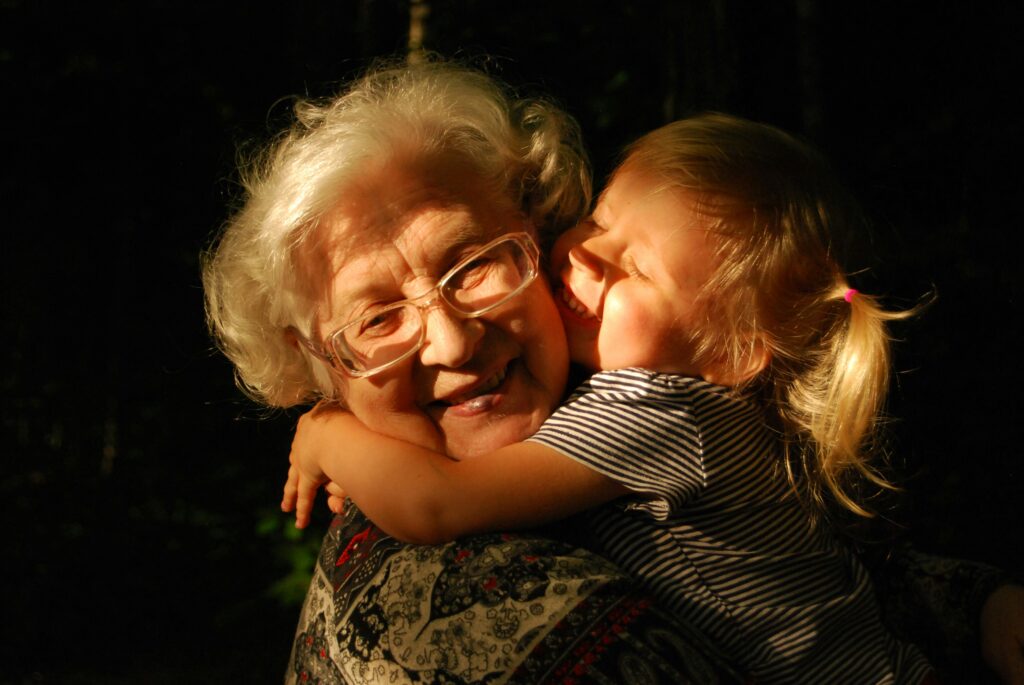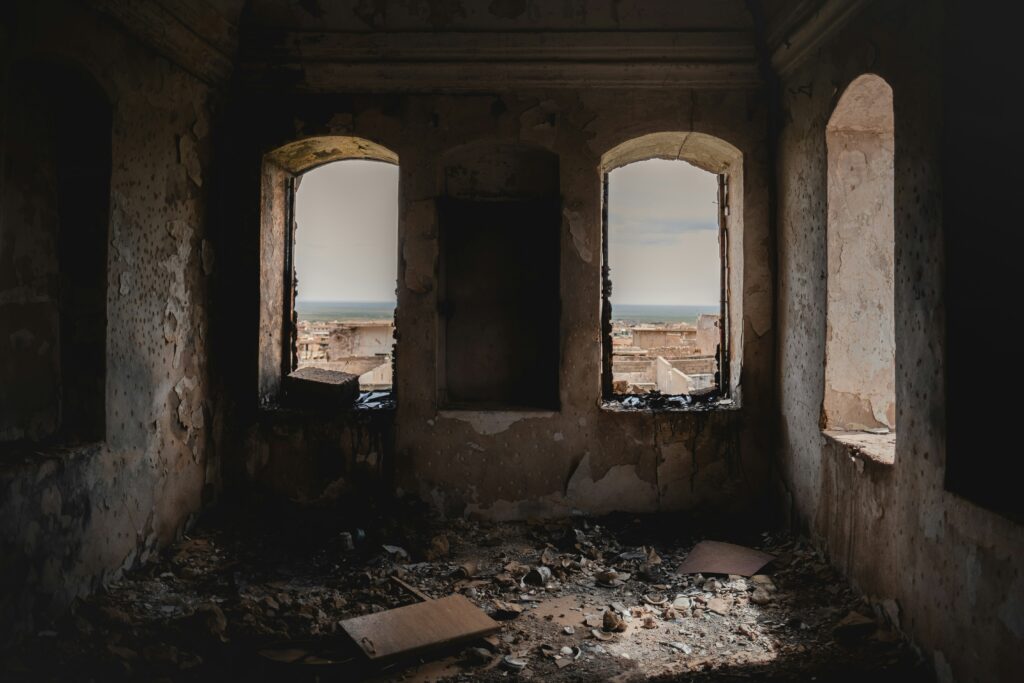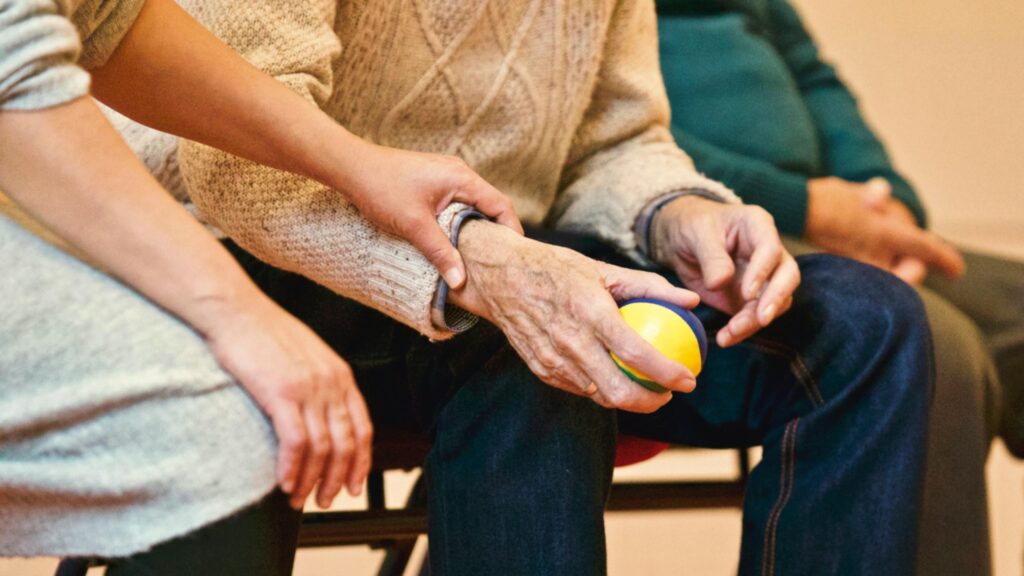
Could do better: human dignity, what it is and how we could respect it more
As much as our age claims to respect human dignity, it often fails to do so. Joseph Evans examines a just published Church document which argues we have much room for improvement.
As we continue to celebrate the 75th anniversary of the Universal Declaration of Human Rights, issued by the United Nations General Assembly on 10 December 1948, it could be a good moment to ask if those rights are actually being respected in our current age.
A new document from the Catholic Church, Dignitas Infinita, which came out in early April, suggests that this might not be the case. While lavish in its praise for the declaration – one pope, John Paul II, described it as ‘one of the highest expressions of the human conscience’ – the Church clearly fears we are in danger of deviating from it.
The document quotes Pope Francis as saying that the declaration “is like a master plan, from which many steps have been taken, but many still need to be made, and unfortunately, at times, steps backward have been taken.”
Indeed, it talks of the need ‘to resist attempts to alter or annul the profound meaning of that Declaration’. Perhaps the Church fears moves to include in the declaration the ‘right to abortion’ or so-called transgender rights. And more generally, one senses that Dignitas Infinita was written out of concern for the growing confusion about ethical questions in our time.

The Catholic Church has always taught that though some ethical rules should be obvious to us, God still revealed them because of the human tendency to get them wrong.
We have a basic moral code written on our hearts but the problem is we don’t always read it.
And so though we all know deep down – whatever our religion or even lack of it – that we should worship God, honour our parents, and not kill, commit adultery, steal or lie, God revealed all this to us in what is now called the Ten Commandments. It was St Augustine who wrote: “God wrote on the tablets of the Law what men did not read in their hearts.”
This is why the latest document from the Church is so important. Because it is stating the glaringly obvious but at a time when people seem unable to see what is staring them in the face – or in their conscience.
Dignitas Infinita (Latin for ‘Infinite Dignity’) is a text written by the Vatican department in charge of doctrinal teaching, the Dicastery for the Doctrine of Faith. But it has also been signed by Pope Francis, a sign that he wants to put his full weight behind it.
The declaration begins with some theoretical, but very precious, reflections on human dignity but then dives into the most controversial and painful issues of our time, giving a traditional Christian take on them.
So, it teaches us that abject poverty offends human dignity, as do war, the miserable situation of migrants, human trafficking, sexual abuse, violence against women, abortion, surrogacy, euthanasia, marginalising the disabled, gender ideology, sex change, and digital violence.
Not surprisingly, the document’s rejection of gender ideology and its affirmation of biological sex as an unchangeable fact have been the most contested in the liberal West, whereas the text’s condemnation of abortion has been politely ignored.
But what is important about the document is its clear vision that, when it comes to human dignity, you can’t cherry pick.
It is a seamless robe and pulling away any disliked thread will only result in pulling the whole thing apart.
And everything has to begin with an understanding of the human person as imago Dei, made in the image of God. Indeed, without God the dignity of the human person has no real basis. If there is no God, on what do we base human dignity?
The great biblical cry, present in the very first book of the Bible, that the human person is made in the image and likeness of God, is what has most defended human dignity throughout history. Philosophers like Nietzsche could see God as the enemy of human flourishing: “How can I exist if God does?” he asked. But the Nazi use of his ideas showed where such a vision could take us.
Where everything is based on the human will and ‘its fleeting and contingent interests’ (here the document quotes the previous Pope Benedict XVI), where is there no objective basis for human dignity, it becomes a question of which interest or lobby group has the power to trump the others. Human dignity becomes what that group decides and has the power to enforce.
Here we could think of the aggressive lobbying by some ‘gay rights’ groups which effectively impose their ideas without any real intellectual basis for them. Any attempts at questioning the validity of such arguments is merely met with vitriolic accusations of homophobia.
The document insists on the objective nature of human dignity, based on our being what we are, rational creatures of God, what it calls ontological dignity. “Ontological dignity is indelible and remains valid beyond any circumstances in which the person may find themselves.”
And it rejects other possible definitions which might reduce dignity to our capacity to think or reason or our socio-economic situation. A person in vegetative state, or even someone who has committed great crimes, does not cease to have a real, objective dignity which should be respected.
And why should we respect others if we do not see them as fellow children of God? As Dignitas Infinita says: “As believers, we are convinced that, without an openness to the Father of all, there will be no solid and stable reasons for an appeal to fraternity.”
The text takes us on a whistle-stop tour of how both the Bible and Christian tradition have understood human dignity. Naturally, the Christian belief that God became man as Jesus Christ only adds to humanity’s value. “By uniting himself with every human being through his Incarnation, Jesus Christ confirmed that each person possesses an immeasurable dignity simply by belonging to the human community; moreover, he affirmed that this dignity can never be lost.”

And this applies even more to the poor: “Born and raised in humble conditions, Jesus reveals the dignity of the needy and those who labour.”
Human dignity is based not only on its origins but also on its ultimate destiny: communion with God. As humans we are called to ‘reflect the glory of the Father’ as his children ‘and to share in eternal life’.
The text then focuses on human freedom, which is an essential aspect of our dignity.
In that sense, we could say that our dignity is not only an inheritance but also a duty.
We are called to ‘live up to the full measure of [our] dignity’. And precisely for this reason, ‘sin can wound and obscure human dignity’, though without ever fully taking it away. The Church is here reminding us that our actions do matter, they have moral significance, and can promote or hinder our human development.
And here the document takes a slightly veiled but still obvious shot at recent moves to enshrine as human rights actions which the Church considers as very wrong. “The concept of human dignity is also occasionally misused to justify an arbitrary proliferation of new rights, many of which are at odds with those originally defined and often are set in opposition to the fundamental right to life.”
No doubt the drafters of the document had in mind things like the recent inclusion of abortion in the French constitution as a fundamental human right.
Dignitas Infinita then gets into the nitty-gritty of specific violations of human dignity. It begins with poverty: “One of the phenomena that contributes significantly to denying the dignity of so many human beings is extreme poverty.”
The Western world cannot presume to place a high value on human dignity when it is content to base its own wealth on the exploitation of poorer countries.
Next comes war and here the text quotes Pope Francis’ oft-repeated but, alas, little heeded statement that ‘war is always a defeat of humanity’. In war no-one really wins, and humanity certainly loses. And the text insists that ‘it would be contradictory for war to be based on religious convictions’.

Tragically, one does not have to look far for examples of this. In our own time Jewish Israelis and Muslim Palestinians are invoking God to justify their mutual killing, or the Christian President Putin is doing the same to sanction his invasion of the Ukraine.
The document explains how migrants are denied dignity and are often in fact considered as ‘less worthy, less important, less human’. Receiving migrants is a way to defend the dignity of every person.
“Human trafficking must also be counted among the grave violations of human dignity”, it then says. It quotes Pope Francis as calling such trafficking ‘a vile activity, a disgrace to our societies that claim to be civilised’.
On considering sexual abuse, the declaration does not fail to admit that this ‘widespread phenomenon … also affects the Church’ and that her efforts to end it must also ‘start from within’.
A number of paragraphs then focus on violence against women and touch on such issues as coercive abortions, polygamy, femicide and domestic abuse.
In talking of abortion, which it describes as ‘particularly serious and deplorable’, the document condemns the tendency towards euphemistic language. Here in England, for example, it is more usual to speak of ‘termination of pregnancy’ than abortion, and to call those who promote abortion ‘pro-choice’. But such language makes us ‘incapable of distinguishing between good and evil’.
“Given such a grave situation,” the text says, “we need now more than ever to have the courage to look the truth in the eye and to call things by their proper name, without yielding to convenient compromises or to the temptation of self-deception.”
How have we reached a state in which we claim that the killing of innocent babies, i.e. abortion, is a human right?
Pope Francis’ own words are then quoted to offer a fierce condemnation of surrogacy, or what is commonly called ‘rent a womb’.
“I deem deplorable,” the Pope says, “the practice of so-called surrogate motherhood, which represents a grave violation of the dignity of the woman and the child, based on the exploitation of situations of the mother’s material needs. A child is always a gift and never the basis of a commercial contract.”
The document then describes euthanasia as a ‘human dignity violation that is quieter but is swiftly gaining ground’. As various governments in the world are taking steps to legalise euthanasia, often based on the so-called right to ‘die with dignity’, the text insists that there is no dignity in killing oneself or another person, no matter how pleasant and clinically clean the context might be.
“Helping the suicidal person to take his or her own life is an objective offense against the dignity of the person asking for it.” The proper way to respect someone’s dignity in such a context would be to give them all the support and affection one can and to help them find meaning in their suffering. Certainly from a faith point of view, suffering always has meaning.

The dignity of the disabled is then clearly affirmed, be the disability physical or mental. “Each human being, regardless of their vulnerabilities, receives his or her dignity from the sole fact of being willed and loved by God. Thus, every effort should be made to encourage the inclusion and active participation of those who are affected by frailty or disability in the life of society and of the Church.”
The document then affirms the dignity of all whatever their sexual orientation and condemns the imprisonment, torturing or killing of people for this reason. But it condemns gender theory as false and as a denial of the dignity of man and woman as unique and complementary.
“Biological sex and the socio-cultural role of sex (gender) can be distinguished but not separated.” Sex-change interventions go against this dignity and deny the objective meaning of the body. Sex is an objective reality not merely a social or psychological construct.
The document also makes a helpful distinction between human dignity and valuing other creatures. While one could never put them at the level of humans – one could not, therefore, speak of the ‘dignity’ of animals – they do have a goodness in themselves and are not merely of instrumental value. Indeed, precisely our superior condition as rational beings should lead us to respect their intrinsic ‘creaturely goodness’ and accept our responsibility to care for the cosmos.
After some final reflections on digital violence, including such phenomena as cyber-bullying and how the web can foster extremism and harm inter-personal relations, Dignitas Infinita concludes that technology should serve and not harm human dignity.
This beautiful document finishes by reminding us that we are responsible for our own dignity and that of others, for as Pope Francis wrote: “every person is immensely holy and deserves our love and dedication.”
To read Dignitas Infinita, click here.
Like what you’ve read? Consider supporting the work of Adamah by making a donation and help us keep exploring life’s big (and not so big) issues!
Joseph Evans
Fr Joseph Evans is a Catholic priest and a member of Opus Dei. He has worked as a journalist and youth worker, and is currently a university chaplain in Oxford. He is co-founder and Editorial Director of Adamah Media and a poet. His most recent work, “When God Hides”, was published by SLG Press in 2025.

